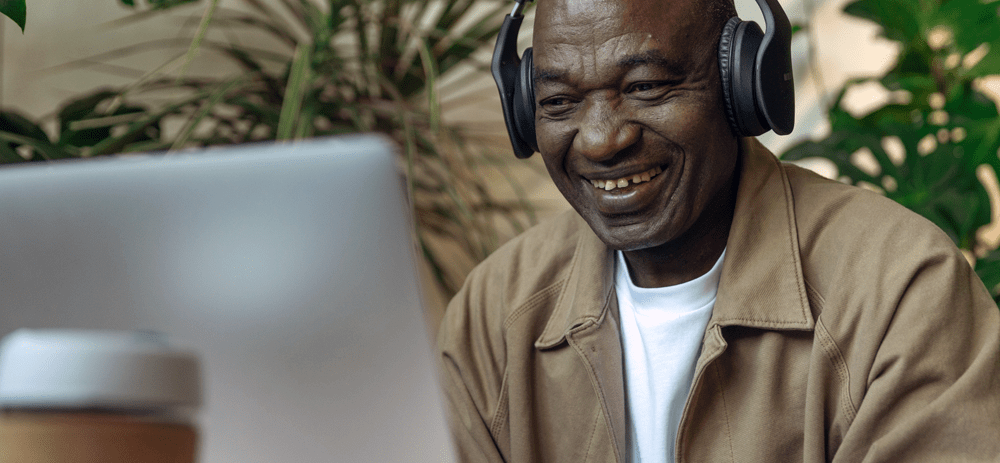Self-Care for Caregivers

Self-care, or actively taking steps to maintain your physical, mental and emotional health, is routinely overlooked by caregivers supporting an aging or ill loved one. Caregivers often experience high levels of stress, depression and anxiety and after a challenging year navigating the pandemic, caregiver burnout and isolation are higher than ever. Lack of time or energy can make self-care challenging and many caregivers unfortunately feel guilty or selfish prioritizing their own health. However, taking care of yourself is actually the foundation of good caregiving because if your needs are met, the person receiving your care will also benefit.
International Self Care Day on July 24th serves as a reminder that by making self-care a daily practice—even if that means dedicating just a few minutes to yourself each day—caregivers can increase their self-confidence, better prevent and deal with illness, cope with stress and boost energy levels. If you are an unpaid, family caregiver, here are some daily self-care ideas to get you started:
Stay Connected
In the best of times, many caregivers feel disconnected from their family and friends and the lockdowns and quarantines over the last year have only increased this isolation. When you spend time with people you love, your brain releases oxytocin or happy hormones and cortisol or stress hormones decrease. The demands of caregiving can make face-to-face connections challenging, so instead take time to send emails, texts or have regular phone calls to maintain important relationships. There’s also value in connecting with other people going through similar experiences, so consider joining an in-person or virtual caregiver support group to help you feel less alone.
Give Thanks
Try starting a gratitude journal to record the things in your life—both big and small—that you are grateful for. This can be family, friends, a sunny day, a new haircut or getting your loved one to bed ahead of schedule. A good place to start is to write down three moments of joy or humour that you’ve experienced at the end of each day. By taking time to notice the positive moments or the things you appreciate, you’ll actually train your brain to be more naturally optimistic. You can even read over your journal when you’re feeling down or stressed to boost your mood or shift your perspective.
Make Time
Explore your interests and find activities that help you relax, unwind and shift your focus away from caregiving. Maybe it’s painting, golf, woodworking, gardening, photography or playing card games. The important thing is to try to do something you enjoy at least once-a-week to get started. Self-care is often pushed aside because it’s hard to fit into your daily schedule, so treat these activities like an appointment and block the time off in your calendar.
Eat Well
Healthy eating habits can be hard to maintain when you’re caring for other people, but good nutrition will benefit your physical and mental health. Chronic stress is linked to increased inflammation, so as much as possible, avoid processed food, refined sugar and alcohol. Instead, eat lots of whole grains, healthy fats, protein-rich food, vegetables and fresh fruit along with drinking lots of water to help you stabilize your energy levels and mood and lower your risk for chronic disease.
Prioritize Sleep
The sleep recommendation for adults is between seven to nine hours a night, but many caregivers don’t get this much—especially if you’re caring for a loved one during nighttime hours. Whenever possible take up to 30-minute naps in the day to catch up and follow a bedtime routine for more restful sleep. This can include breathing exercises, meditation or yoga and avoid computers, TV and smartphones before bed.
Exercise Regularly
Along with getting lots of sleep and eating healthy food, make time for exercise—even if you’re tired from your busy schedule. A regular exercise program will reduce your risk for chronic diseases, decrease stress and help you feel better, sleep better and enjoy life more. Squeeze in small workouts every day, like a walk around the block or an online yoga class, but always talk to a health professional before starting a new exercise program.
Get Help
It can be hard to consider leaving your loved one in someone else’s care and many caregivers struggle to admit that they need help. However, recognizing your limits and reaching out takes strength. Ask friends and family to pitch in and be specific about what you need. You may be surprised that people usually want to help but don’t always know how. Professional caregivers can also give you the chance to rest and return to caregiving with more energy and enthusiasm.
Caregiving can be very rewarding, but it is also a difficult, stressful and exhausting job. By being kind to yourself, acknowledging that this isn’t easy and actively prioritize your health, you’ll be in a better position to help others. Start with small changes focusing on a good sleep routine, finding time to be physically active every day or drinking lots of water and add more goals along the way.
VHA Home HealthCare offers a wide range of home care services to deliver care and support to make life easier and health challenges more manageable. Contact VHA’s Enterprise Health Solutions team at 416-489-2500 ext. 4649 or by email at ehs@vha.ca for more information on how we can help you or a loved one. You may even have coverage for these services through an extended health benefit plan.
